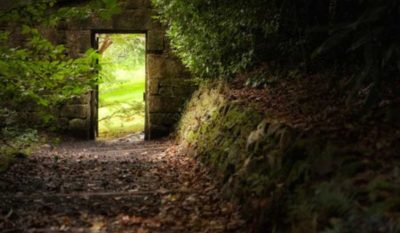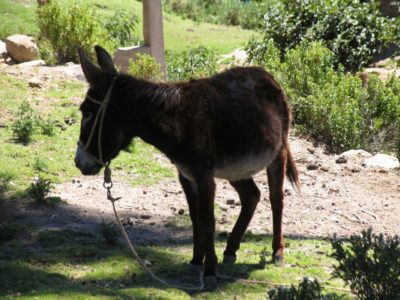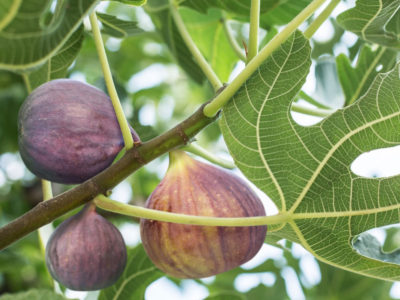March 20, 2022
|by N W
|
0 Comments
|
Father Nixon, Forgiveness, Hope, Love, Repentance
|
Intercession, Salvation
Third Sunday of Lent
March 20, 2022 — Year C
Readings: Ex 3:1-8a, 13-15 / Ps 103 / 1 Cor 10:1-6, 10-12 / Lk 13:1-9
by Rev. Nixon Negparanon, Pastor
Today is the Third Sunday of Lent. The season of Lent is a wakeup call for all of us, a time to be brutally honest with ourselves, so that we come to know how deeply we depend on God’s mercy and providence. We know that the God we worship and believe in has proven to be loving, forgiving, and saving throughout the history of our Faith.
In today’s gospel, Jesus tells about a fig tree that never bears fruit. So, like any sensible farmer, the owner thinks it’s probably time to get rid of it, simply because it does not bear fruit. But the man who works in the field has a better idea: I’ll give it a big dose of loving care, then we’ll hope to see its branches bend under the weight of juicy figs.
That is exactly what Jesus does for us. He feeds us, not with fertilizer, but with His Own Body and Blood. He invites us to stop boasting and be humble and let Him gently point out what we are doing wrong.
A story is told of an eight-year-old boy named Jimmy, who was acting up. He refused to do what he was told to do and did everything he was told not to do. In desperation, his father finally sent him to bed before dessert was served. Just then, a neighbor dropped in. He always liked Jimmy, and after a while he asked the parents if he could talk to the boy.
With a prayer in his heart, he reminded the lad that his disobedience displeased his parents and made them sad. It especially displeased God. The boy began to cry. “What can I do?” The visitor called his parents, who listened with tears in their eyes, as Jimmy told them he was sorry.
What the visitor did for Jimmy, Jesus does for every one of us. That is the meaning of the story Our Lord tells us in our gospel today. The man who planted the fig tree is God the Father. The fig tree means the chosen people of God: you and me. And the vinedresser or the worker in the vineyard is Jesus.
In justice, God the Father decides to cut down the fruitless trees. Christ intercedes. He pleads and prays that we be given more time, that we be given another chance. For the sake of His Son, the Heavenly Father gives us another chance.
This is the story of our life with Christ. We have not borne fruit. We have not done what we were created to do. We have even done what God told us not to do. We have disobeyed His ten commandments. We have not produced. You can’t blame God for being dissatisfied.
He decides to remove us, but Christ intercedes. He intervenes. Christ steps between us and God and asks for another chance. Pleading for us is one of the principal tasks of Our Lord Jesus Christ. He asks for mercy for us. He gets us another chance. Not only does He beg His Father for forgiveness, Jesus begs for all the good things we need.
That is one reason why every official prayer of the Church, especially in the Holy Sacrifice of the Mass, ends with a plea: “Through Jesus Christ, Our Lord,” or some variation of this thought.
There is a rather famous painting that shows a young man playing chess with the devil. They are playing for possession of the young man’s soul. The painting portrays the devil as having just made a brilliant move. Chess players who studied the arrangement of the chess pieces in the painting feel immediate sympathy for the young man. He has been put in a hopeless situation. He has been led down a blind alley with no exit.
Paul Charles Morphy, a former world class chess player, became intrigued by the painting. One day, while studying the arrangement of the chess pieces, he saw something that no one else did. Excitedly, he cried out to the young man in the painting, “Don’t give up! You still have an excellent move left.” There is still hope.
The story fits in beautifully with the point Jesus makes in the parable of the fig tree today. Like the young man in the painting, the fig tree seems lost, then suddenly a ray of hope breaks through. Like the young man in the painting, the tree is not doomed after all; it gets a last minute reprieve. It gets a last minute second chance.
This is an important message for all of us. Because of Jesus, we are never doomed, no matter how bad things seem. Because of Jesus, there is still hope for us, no matter what situation we find ourselves in. Because of Jesus, there is always one more move left to make, no matter how late in the game it is.
This brings us to the most important point of all. How does all this apply to our lives in a very practical way? All of us, to some extent, are like the young man in the painting and like the fig tree in Jesus’ parable. All of us, at one time or another, have arrived at a point in life when it seemed that we were in a no-win situation. Perhaps some of us are at such a point in our lives right now. Perhaps some situation threatens to engulf us and overwhelm us. Perhaps some relationship threatens to destroy everything we believe in. Perhaps some problem has led us down a blind alley that seems to be a dead end.
It’s right here that today’s gospel has an important message for all of us. Because of Jesus Christ, we are never doomed, no matter how bad things seem. Because of Jesus, we always have one more move left. Because of Jesus, there is still hope for us, no matter what the situation.
This is the lesson that’s contained in today’s scripture. This is the good news that we celebrate in today’s liturgy. And this is the message that God wants us to carry back into our world to share with others.
KEEP READING
 540-586-8988
540-586-8988 



